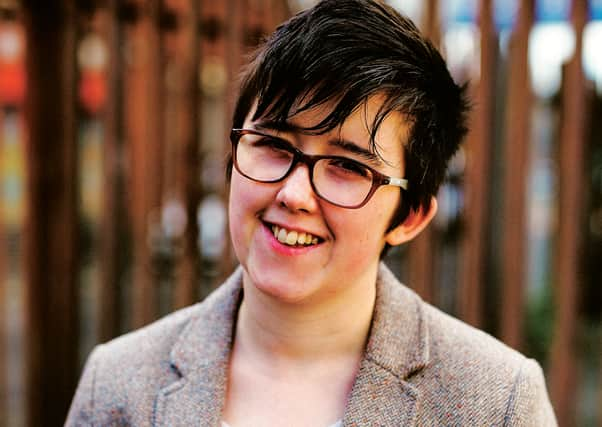Book review: Lost, Found, Remembered, by Lyra McKee


As a journalist, she had made her name by writing about the Troubles from the perspective of someone who came of age after the 1998 Good Friday Agreement. McKee represented a new generation, one that utterly rejected the old men of violence and their ultra-conservative social views. She was openly gay and had friends on both sides of the divide.
Her death, aged just 29, was a bitter blow felt across the UK. It was a reminder that while the remaining active terrorist groups in Ulster may be small in number – and largely made up of ageing cranks – they do still have access to weaponry and are capable of cold-blooded murder.
Advertisement
Hide AdThis senseless killing also robbed the reading public of enjoying McKee’s work in the future as she reached her full potential as a journalist. She had not long signed a deal with publishers Faber to write a non-fiction book, The Lost Boys, on children who disappeared during the Troubles. It was never finished.
Lost, Found, Remembered collects the reportage on which McKee built her career alongside a few extracts from previously unpublished work. “This book is both a celebration of her talent and a reminder of what we have lost,” a publisher’s note explains.
Highlights include a 2014 blog post – “Letter To My Fourteen-Year-Old Self” – in which she pointedly describes the challenges of growing up gay in Belfast; and a thought-provoking feature, originally published in the Belfast Telegraph, called “The Ceasefire Studies”, which challenges what we think we know about life in Ulster.
McKee had found her voice as a journalist by the time she was in her mid-20s, a rare achievement. But then she was a young journalist starting out in a media landscape torn down by the collapse in print advertising. She had to find a way of standing out.
In an essay widely shared in the wake of her death, McKee explains the traditional path to becoming an investigative reporter was blocked to her. She instead advised younger writers to become entrepreneurs – which she defined as “creating value and getting someone to pay for it”. She co-founded one failed news start-up but also backed other, more successful ventures.
McKee was at a stage of her career where she was capable of anything – long-form journalism, radio documentaries, online news start-ups. But that boundless energy, the kind which propels public-interest journalism, was stamped out in the cruellest of ways.
Advertisement
Hide AdMcKee’s death was first and foremost a tragedy for her many friends and family. But as this book demonstrates, it was also a terrible blow for anyone who cares about the future of journalism. The news world is going to need hundreds more Lyra McKees.
Lost, Found, Remembered, by Lyra McKee, Faber, £12.99